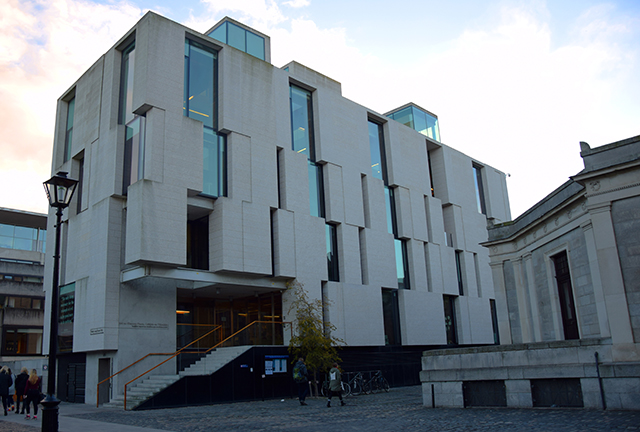Trinity’s Department of Sociology is hosting a conference today on the role and place of religion in Irish primary schools in the 21st century. The conference will bring together stakeholders in Irish education to discuss the current position of religion in education and provide policy-oriented solutions.
Representatives from all prominent types of Irish primary schools and the National Council for Curriculum and Assessment (NCCA) will engage in evidence-based, research-driven discussion relating to the ongoing debate about school patronage in Ireland. Currently, 95% of primary schools in Ireland are denominational, meaning they are affiliated with a particular religion.
Associate Professor of Sociology Daniel Faas, who organised the Trinity conference, highlighted the “imbalance” between the number of denominational schools and the percentage of the population identifying as Catholic. 78.3% of respondents to the 2016 Census identified as Catholics, in contrast to 84.2% in 2011. 10% of people in 2016 expressed they had “no religion”. Faas argued that this calls for “a further expansion of multi-denominational education.”
Faas, who was elected to Fellowship of Trinity in 2015, explained that “stakeholders need to reflect” on how the “power and influence of the Church has eroded” in recent years. “Ireland is rapidly becoming more liberal, secular, and tolerant,” said Faas.
Earlier in May, the government announced its intention to remove the “Baptism barrier” for entry to Catholic primary schools, commencing in September of next year. Catholic schools which are over-subscribed will no longer be allowed to give enrolment priority to children who have been baptised.
Minority faiths, such as the Church of Ireland, will not be prevented from prioritising members of their religion in school enrolments. This is to ensure that pupils of minority faiths can have access to a school of their own religion. Schools which are not oversubscribed will be obligated to accept all applicants without irrespective of religion.
Minister for Education Richard Bruton called the change “historic”. Bruton, who will enact the new School Admissions Bill, said that “parents should not feel pressured to baptise their children to get access to their local school.” The Trinity Conference will discuss the place of religion in schools in the context of this recent change.
Additionally, the Trinity conference is taking place in the wake of a Curricular circulated to post-primary level schools by the Department of Education and Skills in February which required schools to consult with parents concerning religion. The school must engage with parents on the topic of students’ opting out of religious instruction and should offer alternative subject(s). Faas recommends that “primary schools should give serious consideration to a similar approach.”
Today’s Trinity conference will also consider the dynamics of increased migration in Irish schools. It will discuss the importance of equitable outcomes for all children in the education system and the educational challenges which migration can pose.
Currently, there are 2,8000 denominational primary schools in Ireland which are owned by the Catholic church. There are 12 state-owned Community National Schools and 81 privately-governed Educate Together Schools which are multi-denominational. As a result, there is significant diversity in approaches to religious education in Ireland depending upon the school. The conference will examine the heterogeneous nature of the primary education sector as a result of different religious approaches.
Religion is a compulsory subject in Irish schools, although there are opt-out options in Ireland and other countries with similar systems including Portugal and the Netherlands. Other countries such as Germany, Finland, and Belgium offer students an “ethics” subject rather than “religion.” Others, like France and Slovenia, do not teach religious education in schools.
The Trinity conference has been organised jointly by the Department of Sociology and the special interest group “Belief Systems, Ethics and Philosophy in Education” of the Educational Studies Association of Ireland (ESAI). The conference was initially intended to take place on Thursday, 1st March, but had to be rescheduled due to red alert weather conditions.
The conference is taking place today in the Neill Lecture Theatre, Trinity Long Room Hub between 9am and 4:30pm.







